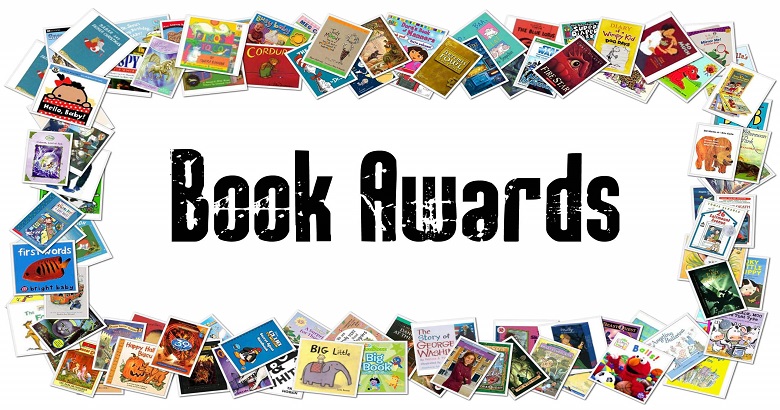In the sprawling and intricate world of book publishing, one question that consistently buzzes in the corridors of author forums, literary workshops, and publishing houses is: Who exactly is responsible for marketing a book? In recent decades, significant changes have occurred in the book marketing domain. Previously, publishing houses were the exclusive stewards of book marketing. However, this has evolved into a more intricate and collaborative responsibility that includes authors, marketing agencies, and consumers. The digital revolution, shifting reader preferences, and the proliferation of marketing services for authors—i.e., initiatives that empower writers throughout their careers—have all contributed to this revolution. We shall explore this complex network to ascertain the current dominant force in book marketing.
The Evolution of Book Marketing
At the outset, the publishing organization was responsible for overseeing the marketing efforts for a book. Book promotion occupied entire divisions at major publishers, who utilized their vast networks and resources to achieve this. On the contrary, the digital age has democratized the publishing process, allowing authors to self-publish and manage their marketing efforts frequently with specialized author marketing services.
- The Role of Publishing Houses: They are no longer the unequivocal leaders of book marketing; their role is changing.
- The Rise of Self-Publishing: The impact digital platforms have had on the authoring process.
- Marketing Services for Authors: A synopsis of how these services address the void created by conventional publishers.
- The Impact of Social Media: Investigating how social platforms can be leveraged in marketing.
Authors: The New Mavericks in Marketing
In light of the proliferation of personal branding and social media, there is a growing expectation for authors to take the lead in their book marketing initiatives. Particularly for those who opt for self-publishing, authors are currently indispensable to the marketing process in their duties, such as managing active social media profiles, interacting with readers, and coordinating book tours.
- Building a Brand as an Author: Personal branding is more significant than ever.
- Engaging with Readers: How interaction in person can enhance marketing initiatives.
- The Power of Author Platforms: Utilizing websites and social media as promotional instruments.
- Content Marketing for Authors: To attract readers, use video content, podcasts, and blogs.
Publishers: Shifting Gears in the Digital Age
Although publishers, particularly well-known ones, continue to substantially impact marketing, their approaches and priorities have changed. Presently, they frequently seek out authors who possess an established readership, thus distributing the marketing load, particularly in territories such as distribution, foreign rights sales, and conventional media exposure—advice, networks, and resources that publishers provide—become indispensable for authors to manage independently.
- Marketing Collaborative Efforts: How authors and publishers can collaborate.
- The Role of Imprints: Marketing to specific niche markets and audiences.
- Digital Marketing Strategies: E-books, email campaigns, and online advertising.
- Press and Media: Utilizing conventional marketing channels in the digital age.
Marketing Services for Authors: Bridging the Gap
Marketing services for authors offer a compromise for those who view the marketing aspect with apprehension or who prefer to concentrate on their writing. The offerings encompass social media administration, book cover design, and comprehensive marketing campaigns comprising press releases and book tours.
- Choosing the Right Service: Considerations when selecting marketing services for authors.
- Cost vs. Benefit: Assessing the possible rate of return on investment.
- Success Narratives: The impact that marketing services have had on the profitability of books.
- DIY Marketing vs. Professional Services: Evaluation of the pros and cons.
The Community and Readers: Word-of-Mouth in the Digital Era
One of the most underrated yet influential marketing forces is the reader and admirer community. While word-of-mouth has consistently been a powerful instrument, its influence and scope have skyrocketed in the digital age. In the book marketing ecosystem, reader reviews, book blogs, social media shares, and book clubs play a vital role.
- Leveraging Book Reviews: The influence that favorable reviews have on platforms such as Amazon.
- Social Media and Viral Marketing: Methods by which books can acquire popularity online.
- Book Clubs and Reading Groups: The grassroots marketing powerhouses.
- Influencer Partnerships: Collaboration with influential literary figures to expand reach.
Analyzing the Impact of Book Awards and Festivals

Literary festivals and book honors present a distinctive marketing opportunity frequently disregarded in digital marketing discussions. Achieving a prestigious award or being invited to participate in renowned festivals can significantly elevate a book’s profile, giving it unprecedented exposure and credibility.
- The Pinnacle of Literary Honors: How honors can enhance a book’s reputation.
- Festival Appearances: Opportunities for exposure and networking.
- The Ripple Effect of Awards: In the form of increased media attention and sales increases.
- Examination of Case Studies: Literary works that have attained acclaim via accolades and literary festivals.
Prospective Developments: What Is The Future Of Book Marketing?
As we contemplate the forthcoming period, several burgeoning trends hold the potential to transform the book marketing domain fundamentally. Transformations in consumer behavior, technological advancements, and emerging storytelling platforms all impact book marketing and sales. Both authors and publishers must take measures to anticipate these trends.
- Artificial Intelligence in Book Marketing: Precise marketing and predictive algorithms.
- The Growing Role of Audio Books: Strategies for marketing the audio format.
- Interactive and Immersive Experiences: The potential impact of augmented reality (AR) and virtual reality (VR) on the book marketing industry.
- The Role of Sustainability in Publishing: Eco-friendly marketing and production practices.
Sums Up
Accountability does not rest with a solitary entity within the intricate fabric of book marketing. The reading community, authors, publishers, and marketing services for authors are all involved in this collaborative effort. Each contributes distinctively to the progression of a book from manuscript to bestseller list. A comprehensive comprehension of these dynamics is imperative for individuals aiming to effectively navigate the perpetually changing realm of book publishing and marketing. Accepting the collaborative nature of contemporary book marketing is crucial for authors and publishers alike, whether they are developing their debut novel or seeking to maximize the potential of their literary creations.
Frequently Asked Question
-
Do authors have to market their books even if they have a publisher?
Yes, authors are increasingly expected to contribute to the marketing efforts of their books, regardless of whether they have a traditional publisher. This can involve building and maintaining a solid online presence, engaging with readers through social media, and participating in book tours and signings. Publishers often look for authors with a platform or audience that can amplify the book’s reach and success.
-
What key services do marketing services offer authors?
Marketing services for authors can vary widely but typically include book cover design, editing, promotional material creation, social media management, arranging book tours, and press releases. Some services also offer targeted advertising campaigns, SEO for author websites, and email marketing solutions to help authors build and engage with their audience.
-
Can social media make a difference in marketing a book?
Absolutely. Social media has become a pivotal tool in book marketing, offering authors a direct line to engage with their readers, build communities, and promote their work. Platforms like Twitter, Instagram, and Facebook allow authors to share updates, teasers, and behind-the-scenes content that can create buzz and anticipation for their books.
-
How critical are book reviews, and how can authors encourage them?
Book reviews are crucial for a book’s success. They provide social proof and influence the book’s visibility on platforms like Amazon. Authors can encourage reviews by offering readers advanced review copies (ARCs), engaging with book bloggers and influencers, and kindly requesting reviews from readers who enjoyed the book.
-
What future trends in book marketing should authors be aware of?
Authors should monitor the rise of audio books and podcasts, the growing significance of AI in personalized marketing, and the potential of AR and VR for creating immersive reading experiences. Additionally, the importance of sustainability in publishing is rising, with authors and publishers seeking eco-friendly ways to produce and market books.



